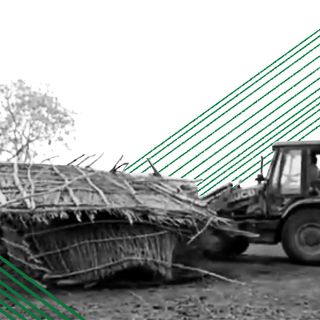A new study has found that resilience, people’s fabled capacity to be strong, is not a static personality trait. It is instead a dynamic process that fluctuates based on a variety of factors — ranging from an individual’s stress levels, to how emotionally stable they are.
To be resilient might mean different things to different people. But a broader understanding associates it with the “mental reservoir of strength” that helps us adapt to hardships, and cope with setbacks in life. In personal or professional settings, resilience is sometimes seen as an inherent character trait — something that works as a static component of one’s personality.
But the new findings expand upon the variation in resilience one might experience. “At the heart of the [present] study is the idea that resilience fluctuates, because it encompasses the way that an individual responds to a variety of circumstances over time,” a report in ScienceDaily stated. The more nuanced understanding of resilience has a bearing on how we assess people’s — or even our own — ability to deal with adversities.
Published this week in Group and Organization Management, the study attempted to understand the factors responsible for these fluctuations in resilience, especially among the working population.
The researchers surveyed the study participants — 314 members of a university marching band — for a period of 12 weeks to assess if their resilience, measured through their commitment to the marching band, alongside their feelings of “burnout”.
“Tracking the trajectories of commitment and burnout helped us see how resilience played out in real-world terms,” Patrick Flynn, an assistant professor of human resources management at North Carolina State University, who co-authored the study, said in a statement.
Related on The Swaddle:
‘Toxic’ Workplace Culture Linked To a Threefold Increase in Risk of Depression, Study Shows
The results suggest a person’s emotional exhaustion increased with the time they spent in an organization, while commitment decreased — impacting their resilience adversely. Essentially, newcomers in an organization appeared to be more resilient than people who had been around for a while. Researchers theorize this could be due to low levels of emotional exhaustion.
The individuals’ emotional stability, too, was found to indirectly impact their resilience — those who were found to be more “emotionally stable,” were able to maintain higher levels of commitment.
In addition, exposure to stressors also played a role. “Chronic stress can wear down resilience,” Flynn noted. This finding is especially alarming at a time when people’s stress levels have shot up due to the ongoing pandemic. The correlation between stress and resilience is particularly worrying — given that resilience can not only offset the risk of traumatic experiences affecting one’s mental health, but also enable people with existing mental health conditions to cope better, according to the Mayo Clinic.
How we perceive resilience ultimately impacts work culture as well as an individual’s job prospects. Flynn explained that hiring people based on how “resilient” they seem might not be a good idea — because “it’s impossible to assess dynamic resilience at any given moment… dynamic resilience is demonstrated across time.” Basically, with factors that influence one’s degree of resilience increasing or decreasing over time, their resilience may be affected.
The researchers believe organizations should be mindful of the myriad reasons that affect an individual’s resilience, and especially understand that it is prone to fluctuate. “[T]hinking about resilience as a dynamic process creates opportunities to foster resilience in employees… In short, it’s not as simple as hiring the right person and assuming things will work out,” Flynn says.




